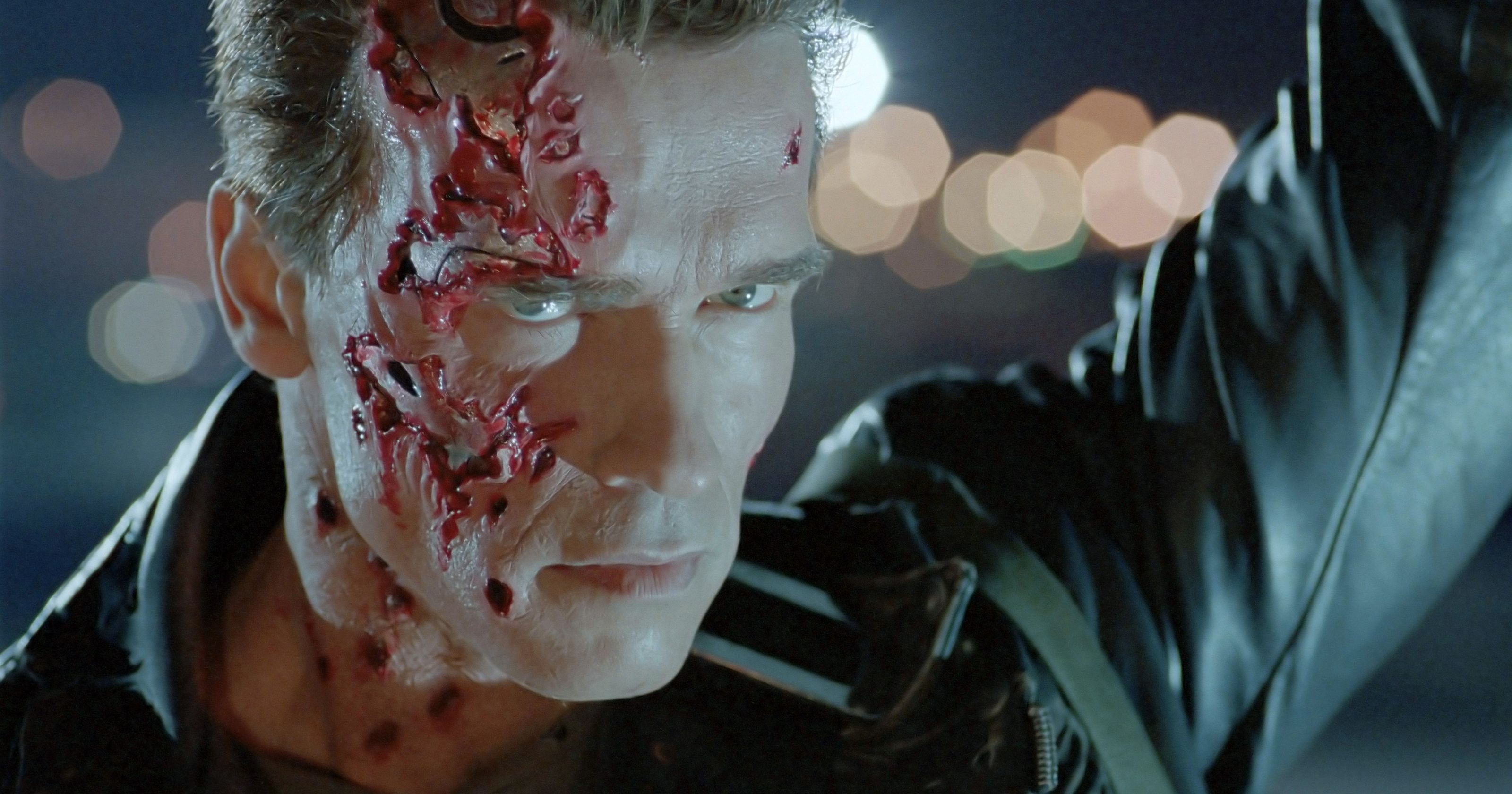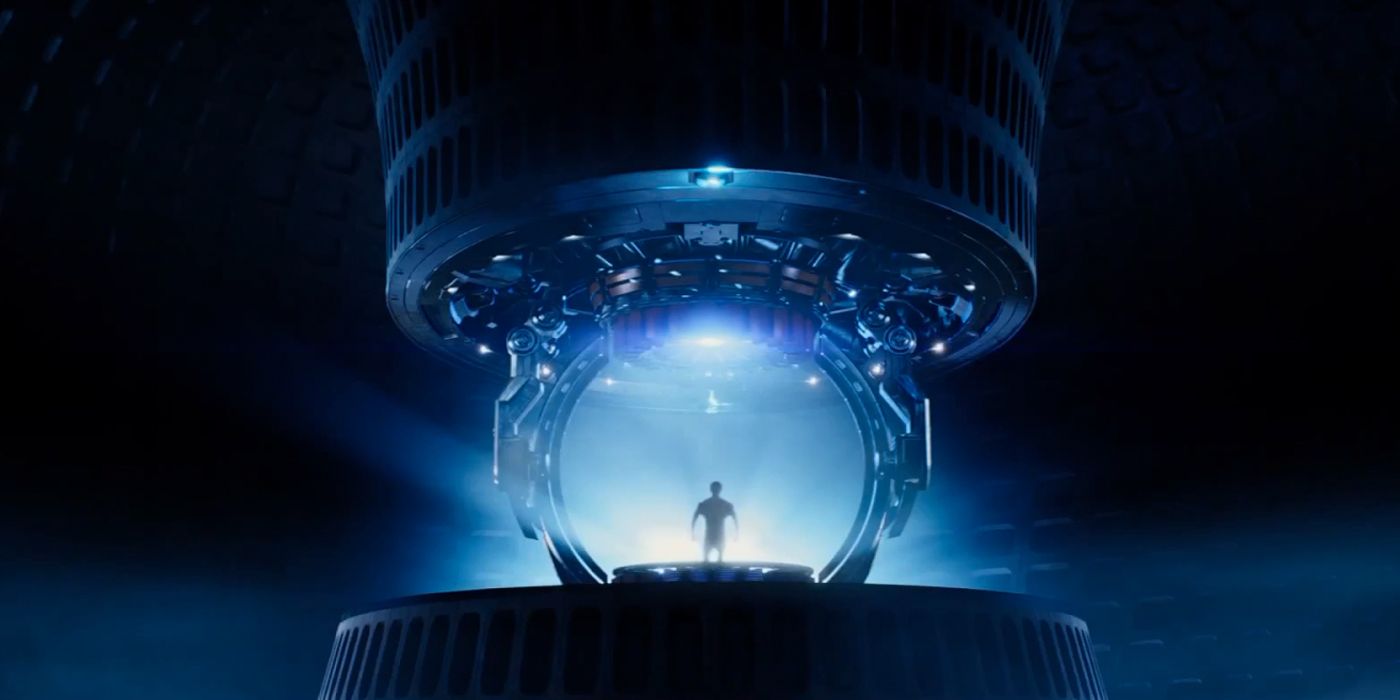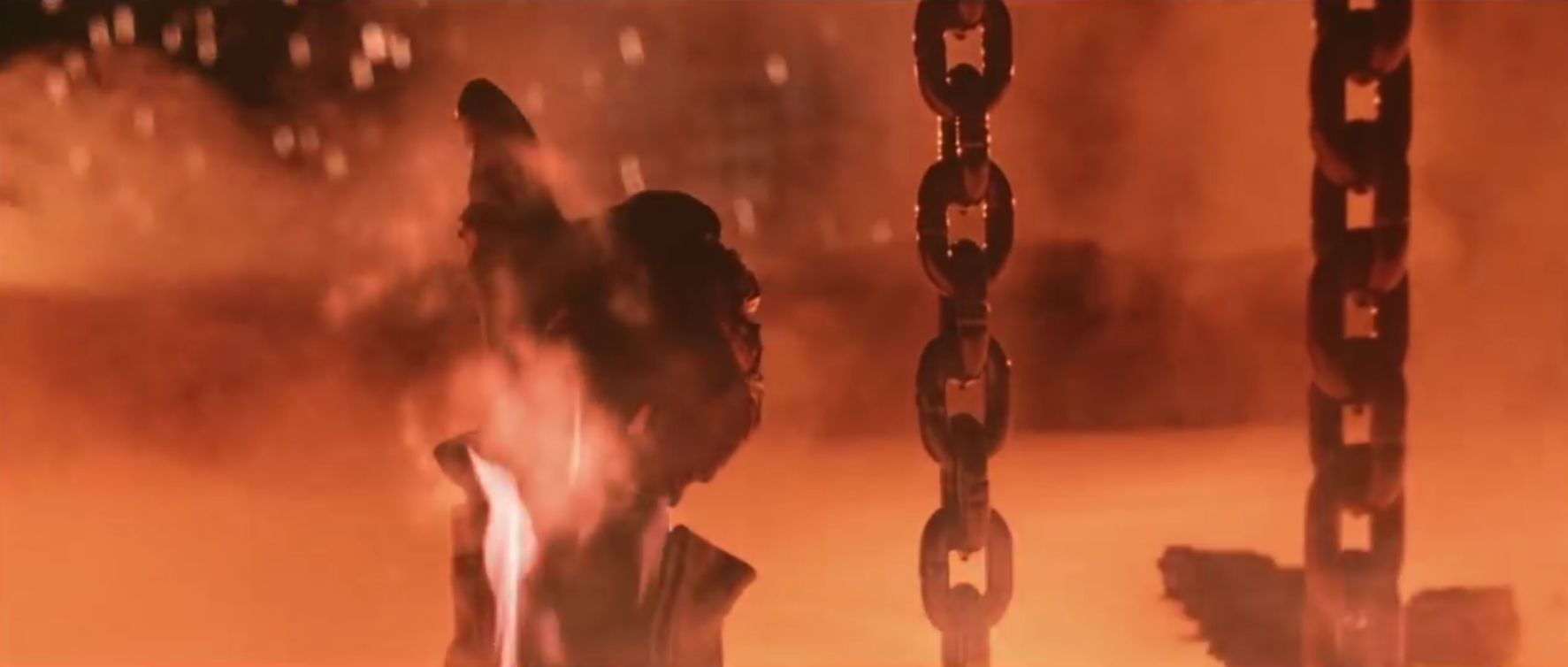Way back in 1984's original Terminator, Kyle Reese (Michael Biehn) described the ultimate killing machine from the future to Sarah Connor (Linda Hamilton) as something that "absolutely will not stop!" Little did Reese nor anyone suspect that over thirty years later, he would be describing the state of the Terminator franchise. In July, the creator of the Terminator and writer-director of the first two blockbuster films, James Cameron, confirmed that he has returned to the franchise he created. Cameron will produce the currently untitled Terminator 6, with Tim Miller (Deadpool) now set to assume the director's chair.For weary fans who have endured two decades of sequels and reboots of questionable quality, Cameron coming back to oversee Terminator is hoped to be exactly the creative boost the ailing franchise needs. The pinnacle of the franchise was Terminator 2: Judgment Day, Cameron's 1991 sequel that saw Arnold Schwarzenegger return as a 'good' Terminator to help Sarah and her young son John Connor (Edward Furlong) destroy the shapeshifting T-1000 (Robert Patrick) and save the human race from being annihilated by the artificial intelligence Skynet. Since then, three different directors and creative teams have attempted to match Cameron's vision and success, but collectively turned the saga into a convoluted mess.2003's Terminator 3: Rise of the Machines was directed by Jonathan Mostow (Breakdown) and starred Nick Stahl as an adult John Connor and Claire Danes as his future wife Kate Brewster. Schwarzenegger returned as the Terminator, sent from the future again to protect John from a new female Terminator, the T-X (Kristanna Loken). Set entirely during the post-apocalyptic Future War, Terminator: Salvation, directed by McG (Charlie's Angels) followed in 2009, this time without Arnold (except for a digitally rendered cameo of his face over the body of actor Roland Kickinger), but with Christian Bale as John Connor and Avatar's Sam Worthington as Marcus Wright, a soldier who discovers he's actually a Terminator. Then in 2015, Terminator: Genisys, directed by Alan Parker (Thor: The Dark World), ignored both of those sequels before completely rewriting Terminator history: now Arnold's Terminator was sent back in the past to save Sarah Connor as a child, and ended up raising her himself. The adult Sarah (Emilia Clarke) and Kyle Reese (Jai Courtney) then travel from 1984 to 2017 to stop Skynet and their new weapon, a cybernatically altered John Connor (Jason Clarke) himself.Genisys was intended to launch a new Terminator trilogy, but by the time it was over, fans had thrown up their hands from trying to understand the twisted time travel pretzel the saga had become, and Genisys limped into being the second-lowest-grossing Terminator film. Now that the franchise is back under the control of its original creator and visionary, despite the effusive praise Cameron famously heaped upon Genisys, should he ignore the events of that film? Absolutely. Not only should Cameron dustbin Genisys, he should ignore Terminator 3 and Salvation as well.
WIPE THE SLATE CLEAN
According to a new interview with Schwarzenegger, Cameron's plan for Terminator 6 is to ignore Terminator: Genisys and create a direct sequel to Terminator 2. To wit, Linda Hamilton is currently training and getting back into her lean, mean fighting form to reprise her role as Sarah Connor. Though only Genisys has been named explicitly, everything not written by James Cameron since T2 will likely be considered apocryphal. This would ultimately be the right move. None of the post-Cameron Terminator movies ever felt right. At best, they approximated, and in the case of Genisys, outright replicated Cameron's visual style and story beats, but each of those three movies came off like expensive fan films that ultimately missed the point of Terminator while making the greater story more and more confusing to follow.
Cameron is probably creative enough to find a way to honor the events, if not of Genisys, than of T3 and Salvation, and work them into his new story, but why should he even bother? There's no upside to trying to make the events of those movies fit whatever he has planned, and it's not like T3, Salvation, or Genisys have legions of fans loyal to those films who would demand due reverence to them. Distancing Terminator 6 from the three films Cameron had nothing to do with is the right move creatively. Better to not even attempt to explain them as offshoots of alternate timelines or to have them synch up in some way to Terminator 6; Cameron should just proceed as if those films never happened.
JOHN CONNOR: SAVIOR, NOT VILLAIN
In Terminator 2, John Connor was a troubled but bright and plucky 12 year old who felt abandoned by his mother Sarah. Her obsession with preparing him for a terrible future of being a military leader fighting killer cyborgs ultimately landed her in an insane asylum. When John met the Terminator his own future self sent back in time to protect him, he found an ersatz father figure in the killer cyborg and was able to understand that his mother was right all along, and they became closer, especially after the Terminator sacrificed himself in order prevent Judgment Day from happening.
Every Terminator movie since then had no idea what to do with John Connor. Terminator 3 made the adult John a burnout junkie living off the grid and burdened by the apocalyptic future that was going to happen anyway. Salvation shuffled John into a supporting role where he became an irascible hard ass who it turns out wasn't even the leader we were told he was - he took his marching orders from a general hiding from Skynet in a nuclear submarine played by Michael Ironside. Finally, Genisys decided that John Connor not only wasn't the savior of humanity Cameron intended him to be, he was actually Skynet's tool. Genisys turned John into the newest Terminator, hunting down his own parents Kyle and Sarah in 2017. By the time Genisys was over, the character assassination of John Connor was complete in a way no Terminator cyborg could accomplish physically.
Cameron will likely restore John Connor to his intended status as humanity's savior. Under Cameron's creative guidance, we can thankfully expect that 12 year old from T2 to emerge as the brave leader of men he was always supposed to be, in the way that none of the filmmakers who succeeded Cameron could ever properly conceive John Connor as. T3, Salvation, and Genisys treated John Connor as a problem in the Terminator saga to be minimized, written around, or regarded as an antagonist. With Cameron back running the show, John Connor's complete story as an adult should finally be properly told.
EMBRACE OPTIMISM, NOT INEVITABILITY
Starting with Terminator 3, when John Connor and Kate Brewster hid in a military base in the mountains watching Judgment Day happen, the saga shifted from stopping Skynet and saving the future as an achievable goal to Judgment Day being inevitable. This did make sense in terms of causality: if Skynet didn't nuke humanity and take over the Earth with machines, then there'd be no future war that would cause John to send his father Kyle back in time to meet his mother, thus ensuring he'd be born. But deciding that the Future War was the story to tell, Terminator 3 and Salvation ignored the point of T2: the future is not set; there's no fate but what we make for ourselves. The post-Cameron sequels said no, robots in the future are inevitable, let's get some Terminators built and smash 'em up!
Of course, James Cameron has to do the same thing to create more sequels. If Terminator 2's ending truly held, then Sarah, John and the Terminator would have stopped Skynet from ever being built and Judgment Day would never come to pass. However, the heart of Cameron's Terminator films, especially T2, was about the human relationships, be it between Sarah and Kyle, mother and son, or John and his Terminator, whom Sarah described: "Of all the would-be fathers who came and went over the years, this thing, this machine, was the only one who measured up. In an insane world, it was the sanest choice." When the Terminator decided to self-terminate, it told John: "I know now why you cry, but it is something I can never do." The Terminator itself learned a lesson about the value of humanity. Finally, T2 ended with Sarah stating that she faced the future "for the first time with a sense of hope, because if a machine, a Terminator, can learn the value of human life, maybe we can too."
Cameron's concluded his Terminator story with a profound sense of optimism and hope. Though he must now return to a world of killer machines meant to wipe out mankind, the boon is that the underlying sense of humanity in his storytelling that has been missing in the Terminator sequels made without him is bound to return. Ultimately, this sense of fighting to create a better future, even against the apocalypse itself, is the key to why the Terminator saga became so popular to begin with. The point wasn't killer robots, it was stating the value of humanity. By re-embracing themes of humanity, hope, and optimism, Cameron and Miller's Terminator 6 can truly become a worthy sequel to the first two Terminator films. This would be the best way to say "Hasta la vista, baby!" the follies of the last three Terminator movies and create a better future, both for the Terminator franchise and for its fans.




